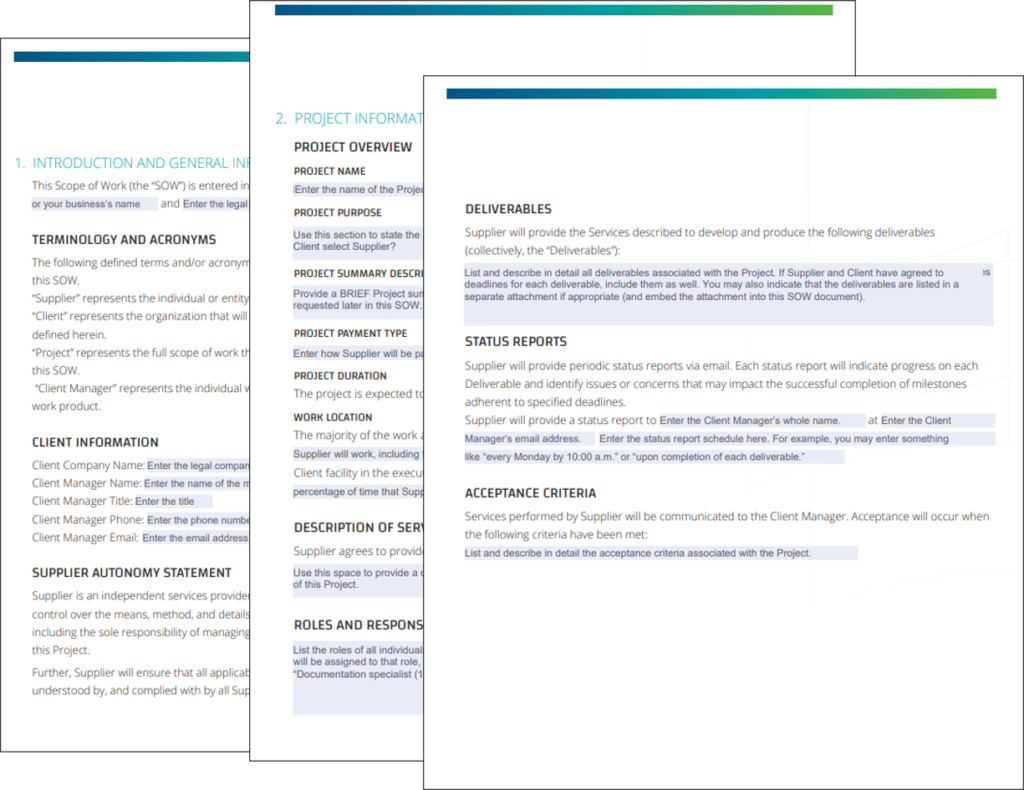
A skills management consultant helps you see your business in a different way. They are an observer who must be able evaluate all areas. A consultant can often be very close to your business and offer a fresh view. This can benefit your business as well your employees. Having a consultant review your business can help you make changes that will improve your results. This type advice can help you make better decisions, and your employees be more productive.
Communication skills
Communication consultants work with organizations to determine their communication needs and create a communication strategy. You will need to have a wide range of skills such as writing, public speaking, and project managing. These skills allow you to recognize and solve communication problems in businesses and offer strategies to improve them.
The course examines all aspects that contribute to effective communication. The course examines both the consultant's role, responsibilities, and the challenges they face. It examines the elements that make good communication skills, and helps students identify the areas in which they are lacking.
Empathy
Empathy is an essential leadership skill and key ingredient of successful leadership. It is important in good times and particularly useful in difficult times. It is not the same for everyone. Leaders must understand others' perspectives and that of their teams in order to lead well.

The classic empathy maps consists of four quadrants. Each quadrant represents one dimension of the experience. They are arranged in a clockwise order starting at the top. The inner experience is represented by the left half, while the inner experience is represented by the right. In a business setting, this is vital.
Flexibility
There are many reasons flexibility programs are important. They can improve employee happiness, reduce turnover and promote employee health. They can also have important financial benefits for the bottom line. These are just some of the ways flexible workplace programs can increase your bottom line. These programs can help attract and retain top talent.
Flexibility is the ability to adapt your approach to change. For instance, if you are a change management consultant, your approach should be adaptable to the kind of change you are working with. This will help you be more effective in your guidance.
Change Management
A Skills management consultant is someone who has a degree in business or another related field. In addition to having a degree, a change management consultant must have strong communication and interpersonal skills. A person must be able manage multiple stakeholders and projects. An experienced consultant in change management can help you to create a plan for your project.
The primary purpose of a Change Management consultant is to facilitate organizational changes. They help organizations make employees understand why change is necessary and how the changes will benefit the company. A good consultant will have strong facilitation skills, including active listening, empathy, and patience.

Organizational skills
An Organizational Skills Management Consult is a consultant who improves the leadership skills and management abilities of individuals and groups. This can include providing feedback and communication improvement. The consultant can also create and implement programs to prepare employees for leadership roles. In addition to this, organizational design consultants help companies create a structure that supports the company's goals and objectives. They will create job descriptions and determine the resources needed to achieve those goals.
Organizational consultants are independent advisors that help companies implement changes and better use their human resources. They review organizational structures, assess business processes, and interview managers in order to identify potential developmental needs. They may also recommend education programs and other consultants to managers in order to improve their skills.
FAQ
What type of jobs can a consultant do?
You will need to be able to understand business strategy and operations if you want to work as a consultant. Understanding how businesses work and their place in society is also essential.
A career as a consultant requires you have great communication skills and a strong ability to think critically.
Consultants must be adaptable because they may be asked to do different tasks at different times. They must be flexible and able to change directions quickly if needed.
They should be willing to travel extensively on behalf of their clients. This type of work can take them all over the world.
They must also be able handle stress and pressure well. Consultants may sometimes be required to meet tight deadlines.
Consultants might be required to work long hours. You may not get overtime pay.
Is it necessary to pay taxes on consulting income
Yes. Taxes will be charged on consulting profits. The amount of your earnings per year will determine the tax payable.
If you are self-employed, expenses can be claimed on top of your salary. These expenses include rent, childcare and food.
But you won't be able to deduct interest payments on loans, vehicle depreciation, or the cost of equipment.
You can only claim back 25% of your expenses if you earn less than PS10,000 a year.
But even if you're earning more than this threshold, you might still be taxed depending on whether you're classed as a contractor or employee.
Employees are generally taxed through PAYE (pay as you earn) and contractors through VAT.
What contracts are available for consultants?
Standard employment agreements are signed by most consultants when they are hired. These agreements outline how long the consultant will work for the client, what he/she will get paid, and other important details.
Contracts will also outline the areas of expertise and compensation for the consultant. The agreement might state that the consultant will conduct training sessions, workshops or webinars.
Sometimes, the consultant simply agrees that a specific task will be completed within a set time frame.
Many consultants also sign independent contractor agreement in addition and standard employment agreements. These agreements allow the consultant not only to work for himself/herself but also provide payment.
How much do consultants earn?
While some consultants may make over $100k per annum, most consultants earn between $25k and $50k. The average consultant salary ranges from $39,000 to $39,000. This includes both hourly and salaried consultant.
Salary depends on industry, experience, location, and type of contract (contractor vs employee). Also, whether the consultant is located in their office or remote.
How did modern consultancy come about?
The first consultants were accountants that helped companies manage finances. They became known as "accounting consultants." This was because they had become very skilled at managing financial information. However, this role soon expanded into other areas, such as human resources management.
The French word for advice, "consultant", was originally used to describe someone who could advise on the management of an organization. The word consultant is still used by most business owners to refer to any kind professional advisor.
How can I find clients for my consulting business?
It is important to identify an area of passion. It can be anything you like, including public relations or social media. You might have to start small, such as by finding niche markets like web design. Once you have identified the niche, be sure to fully understand its characteristics. What problems does the solution solve? What problems can it solve? What are the benefits?
You can also contact businesses directly.
You can also offer your services at events such as networking nights and conferences, if all else fails. It's a great way to get in touch with potential customers, without spending too much on advertising.
Who hires consultants
Many organizations employ consultants to assist in projects. These include small businesses, large companies, government agencies and non-profits.
These consultants may work directly for the organization, or freelance. The process of hiring depends on the size and complexity the project.
There will be many rounds of interviews for consultants when you are looking to hire. Only then can you select the right person to fill the position.
Statistics
- According to IBISWorld, revenues in the consulting industry will exceed $261 billion in 2020. (nerdwallet.com)
- 67% of consultants start their consulting businesses after quitting their jobs, while 33% start while they're still at their jobs. (consultingsuccess.com)
- According to statistics from the ONS, the UK has around 300,000 consultants, of which around 63,000 professionals work as management consultants. (consultancy.uk)
- Over 50% of consultants get their first consulting client through a referral from their network. (consultingsuccess.com)
- WHY choose me: Why your ideal client should choose you (ex: 10 years of experience and 6-week program has helped over 20 clients boost their sales by an average of 33% in 6 months). (consultingsuccess.com)
External Links
How To
What should I do to get started with a consulting business?
You can make a lot of money by setting up a consulting business. No prior business experience is required. A good place to start your own consulting company is to build a website. To promote your services, you will need to create a website.
These tools allow you to make a marketing program that includes the following:
-
Creating content (blogs)
-
Building relationships (contacts).
-
Generating leads (lead generation forms).
-
Selling products via ecommerce websites
Once you have created your marketing strategy you will need to find clients that will pay for it. While some people prefer to attend networking events and groups, others prefer online methods like Craigslist, Wikijiji, or Kijiji. The choice is up to you.
After you have found new clients, it's important to discuss terms and payment options. You can discuss hourly rates, retainer agreements, flat fees, and other options. So that you are able to communicate clearly during the entire process, it is important to understand what you expect from a client before you accept them.
Hourly agreements are the most common contract type for consultancy services. This type of contract requires you to provide certain services at fixed rates each week or month. You may be able negotiate discounts depending on what service you offer. When you sign a contract, make sure you fully understand it.
Next, create invoices and then send them to clients. Invoicing is one thing that looks simple until it's actually done. There are many different ways to invoice your clients, depending on your preferences. For example, some people prefer to have their invoices emailed directly to their clients, while others print hard copies and mail them. Whatever your preferred method, make sure it works well for you.
Once you have created invoices, it is time to collect the payments. PayPal is preferred by most because it is easy-to-use and offers multiple payment options. There are many other payment options, such as Square Cash, Square Cash and Google Wallet.
Once you are ready to start collecting payments, it is time to open bank accounts. Separate checking and savings accounts allow you to keep track of income and expenses separately. Automated transfers into your bank account are a great way to pay bills.
It can seem daunting to start a consulting business. But once you understand how it works, it becomes second nature. You can read our blog post to learn more about how to start a consultancy business.
You can make extra money by starting a consulting company without worrying about staff. Many consultants work remotely, which means they don't have to deal with office politics or long hours in the office. Since you are not tied down by regular working hours, you have more flexibility than a traditional employee.